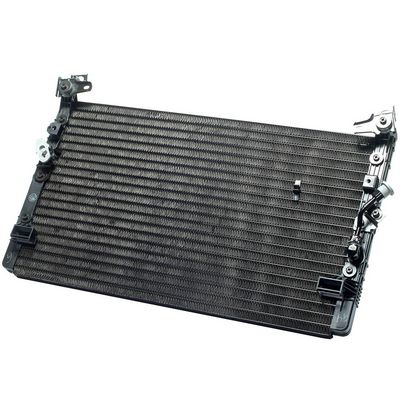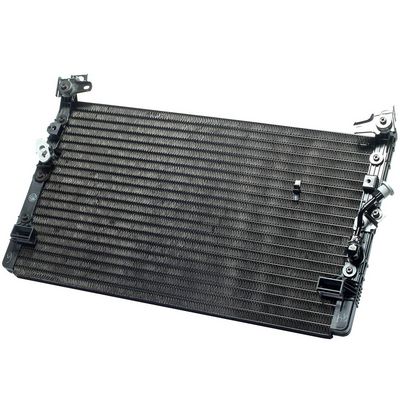Answer
Aug 28, 2024 - 03:39 PM
If the DENSO 477-0514 A/C Condenser malfunctions, it can lead to several issues affecting the overall performance of your vehicle's air conditioning (A/C) system. The A/C condenser is crucial in cooling and condensing refrigerant vapor back into a liquid state, which is essential for the A/C system to function effectively. A malfunctioning condenser can cause the following problems:
1. Reduced Cooling Performance:- The primary function of the A/C condenser is to dissipate heat from the refrigerant. If the condenser is not working properly, it won't be able to cool the refrigerant effectively, leading to reduced or no cooling output from the A/C system. This may result in the air coming out of the vents being warm or only slightly cool, making it difficult to achieve a comfortable cabin temperature.
- A malfunctioning condenser can cause a buildup of pressure within the A/C system. The condenser is responsible for condensing the refrigerant vapor into a liquid. If it fails to do so, the refrigerant will remain in a gaseous state, causing high pressure in the system. This can lead to further damage to other components, such as the compressor or hoses, and can trigger a high-pressure cut-off switch, causing the A/C system to shut down to prevent damage.
- The A/C compressor relies on the proper flow and state of refrigerant to function correctly. If the condenser is not effectively cooling the refrigerant, the compressor may be forced to work harder than usual, leading to overheating or even failure over time. A failed compressor is a significant and costly issue, often requiring replacement of multiple A/C components.
- A malfunctioning condenser could develop leaks, either due to physical damage (such as from road debris or corrosion) or due to stress from high pressures within the system. Leaks can cause a loss of refrigerant, which will diminish the system's ability to cool and can also lead to environmental concerns due to refrigerant release.
- If the condenser is damaged internally, it could allow debris or metal shavings to enter the A/C system. Contaminants can circulate throughout the system, potentially clogging components like the expansion valve or the orifice tube, leading to further malfunctions and extensive repairs.
- In some vehicles, the A/C condenser is mounted in front of the radiator, and if it fails or becomes blocked, it can restrict airflow to the radiator. This could cause the engine to run hotter than usual and, in extreme cases, lead to overheating of the engine.
- A damaged or malfunctioning condenser might produce unusual noises when the A/C is running, such as hissing, clunking, or rattling. These noises could indicate refrigerant leaks, blockages, or damage to the condenser itself.
- Modern vehicles with sophisticated climate control systems may have sensors and diagnostics that detect issues with the A/C system. A malfunctioning condenser might trigger an error code or a warning light on the dashboard, indicating a problem with the A/C system that needs attention.
- Inspect and Diagnose: A professional mechanic should inspect the A/C system to diagnose the exact cause of the malfunction. This may involve checking refrigerant levels, inspecting for leaks, or using diagnostic tools to read error codes.
- Repair or Replace the Condenser: If the condenser is found to be faulty, it may need to be repaired (if possible) or replaced. Replacing the condenser often involves evacuating and recharging the A/C system with refrigerant, so professional service is recommended.
- Check for Additional Damage: Since a malfunctioning condenser can cause issues throughout the A/C system, it’s essential to check other components, such as the compressor, hoses, and evaporator, for any signs of damage or contamination.
Addressing a malfunctioning A/C condenser promptly can help prevent further damage to the A/C system and ensure a comfortable and safe driving experience.





Add New Comment